SEVENTY years ago, Moree Municipal Council adopted an ordinance denying Aboriginal people entry to Moree Bore Baths and Moree War Memorial Hall.
In part, the ordinance stated “no person, being a full-blooded or half-caste aboriginal native of Australia, or being a person apparently having an admixture of aboriginal blood, shall use or occupy, or be present in or upon, or be allowed or permitted or invited to use or occupy or be present in or upon the premises of the Council known as the Memorial Hall, or in or upon any of the buildings or places ancillary thereto, or be present in or upon the premises of the Council known as the Bore Baths, or in or upon any of the buildings or places enclosed therewithin”.
Last week, a proud Gomeroi man born-and-raised at Soapy Row – Moree Plains Shire Council deputy mayor, Wayne Tighe – chaired an ordinary council meeting in the absence of mayor Susannah Pearse.
His leadership role at Thursday’s meeting marked an important chapter in the decades-long history of local government in Moree.
“To stand up and chair the meeting was a really big occasion for me – a very proud occasion,” Cr Tighe said.
“Moree has come a long way in the last 50 or 60 years, and to have an Aboriginal person chairing a council meeting as acting mayor is a milestone.
“It’s not only a milestone for me, but for my family and all Moree Plains Shire Aboriginal communities.
“I was a bit nervous at the beginning of the meeting, especially when we spoke about the Taylor Oval proposal, but once we got actively engaged with everything that needed to be discussed, I was fine,” he said.
The contentious issue of constructing a 50-metre swimming pool complex at Taylor Oval was discussed briefly by councillors before a packed public gallery.
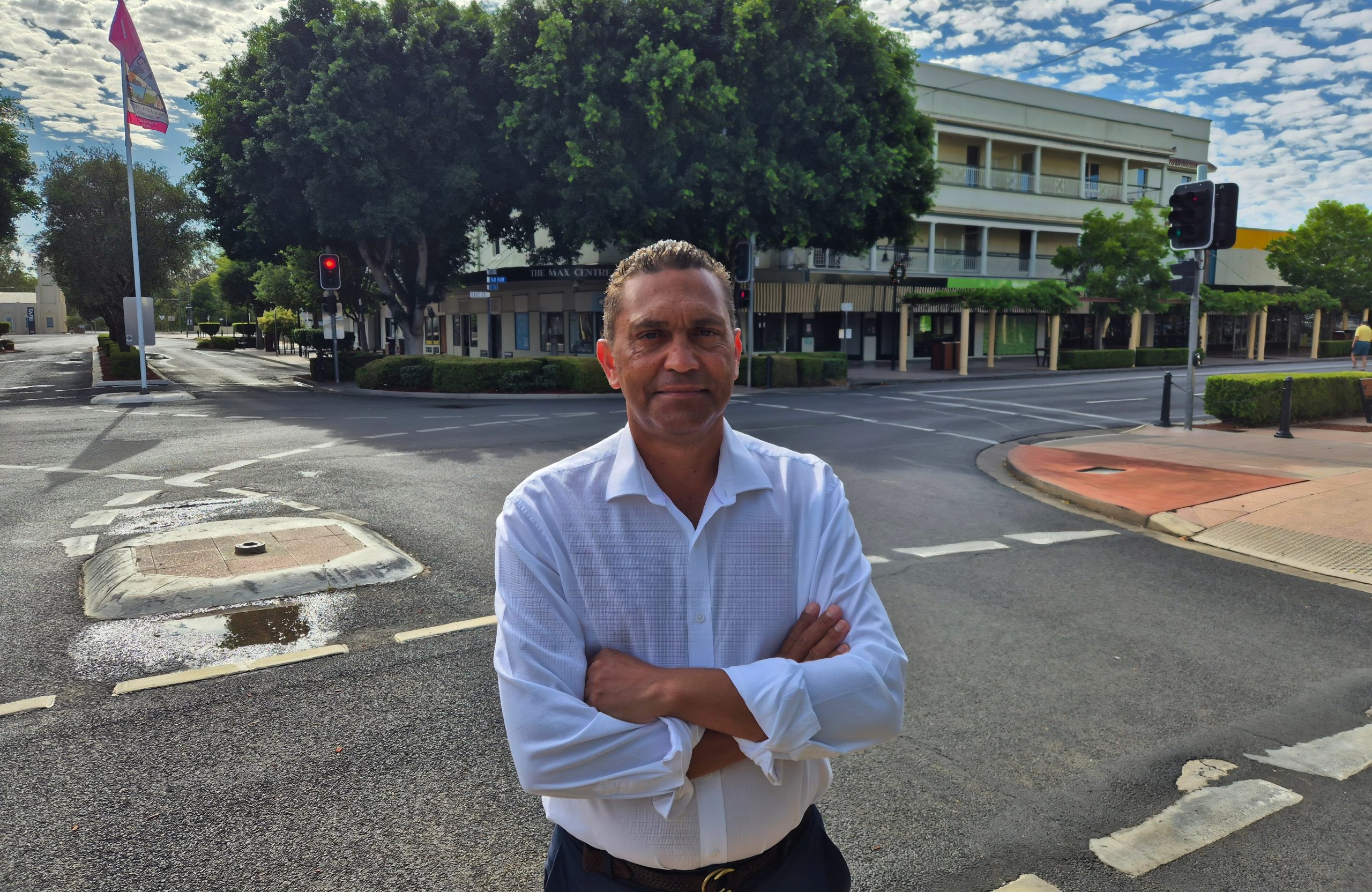
Moree Plains Shire Council deputy mayor, Wayne Tighe last week became the first Aboriginal councillor to chair an ordinary council in Moree. His leadership role marked an important chapter in the decades-long history of local government in Moree.
It was a significant moment for Cr Tighe, given 60-odd years ago Aborigines were not permitted to enter the Moree Bore Baths.
The 1955 council ordinance was scrapped 10 years later when University of Sydney students, led by Charles Perkins, embarked on the history-defining Freedom Ride across much of New South Wales.
The Freedom Riders picketed Moree Bore Baths in protest against the council ruling.
Students met with Moree mayor Bill Lloyd and alderman Alf Jones and, soon after, they secured the entry of more than 20 Aboriginal children to Moree Bore Baths – but the move did not go with incident.
Much of the Freedom Ride was diarised by student Ann Curthoys, author of Freedom Ride: A Freedom Rider Remembers.
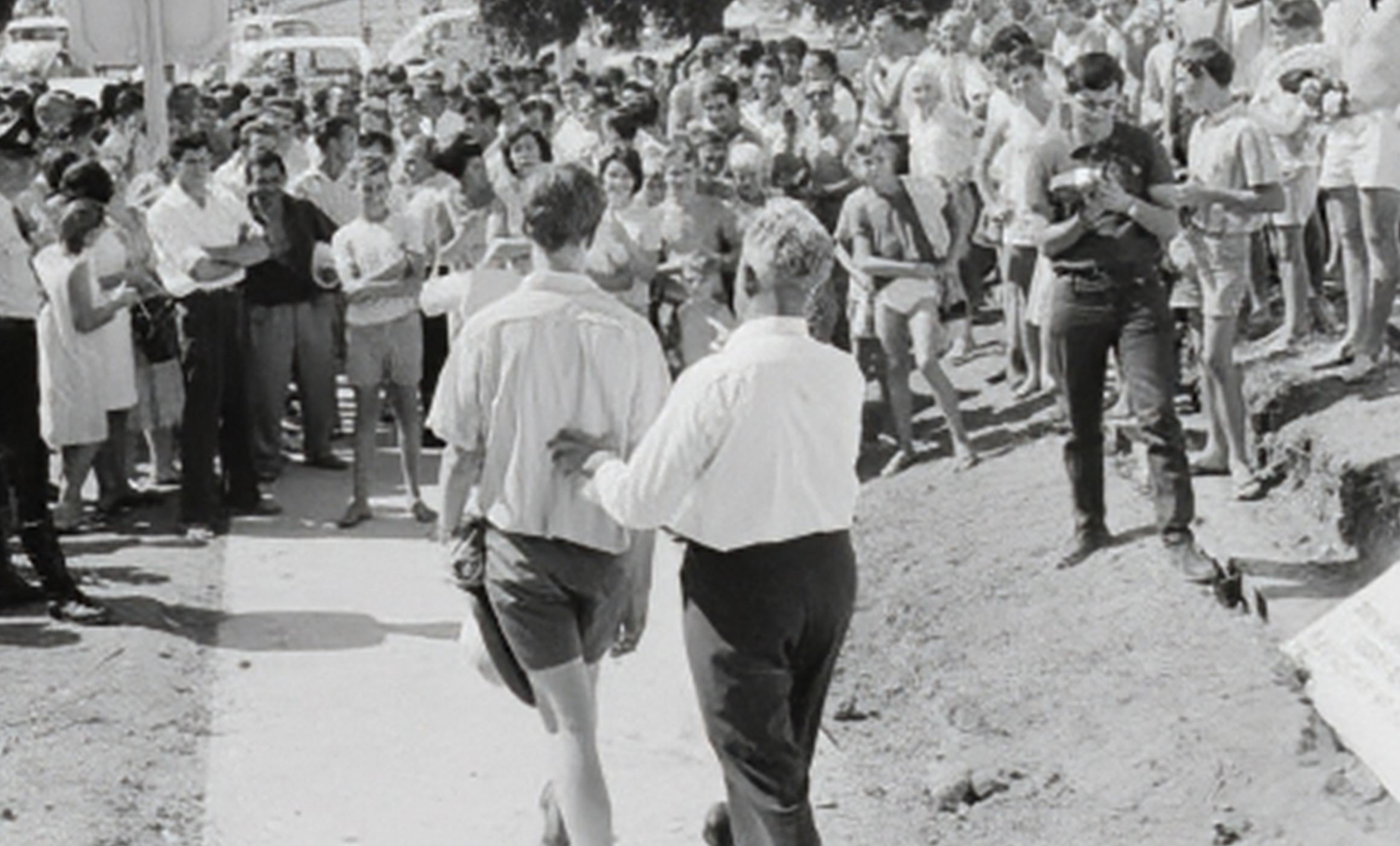
Mayor Bill Lloyd escorts a university student from the Moree Bore Boths in 1965. Alderman Lloyd later led a vote that rescinded a council bylaw forbidding Aboriginal people from attending the pool (Image courtesy of Mitchell Library, State Library of New South Wales).
“We all went to the swimming pool and lined up behind the children, continually requesting permission to enter. Charlie (Perkins) started talking to the crowd, but there was a lot of hissing and booing. Then he went to the front of the line and when he refused to move, was grabbed and taken away from the line,” Curthoys wrote.
“Those of us who had been walked off were prevented from rejoining the line as we had intended. Angry discussion broke out everywhere. I have never met such hostile, hate-filled people. The hostility seemed to be directed at us as university student intruders rather than to the Aborigines.
“It was very hot and crowded and noisy that day. Police escorted the party, and they walked through the crowd who threw eggs, tomatoes, stones, and spat at us.”
The pool was closed and alderman Lloyd reiterated his willingness to quash the ban.
“The mayor came up to us and stated categorically that he would be prepared to sign a motion to rescind the 1955 statute we were protesting against, and would get two other aldermen to co-sign it,” Curthoys wrote.
Moree Municipal Council rescinded the by-law, with residents voting to desegregate the pool and lift the colour bar.
The historic moment changed the town forever – and, more importantly, changed the mindsets of thousands of people.
Sixty years later, Aboriginal deputy mayor Wayne Tighe stood proudly at the head of the table in council chambers last Thursday to chair a meeting that included talks about the future of Moree Bore Baths – now known as Moree Artesian Aquatic Centre – and the possible future development of Taylor Oval.
When Cr Tighe opened the meeting, he singlehandedly created a poignant chapter of Moree’s at-times dark and disturbing history.
“My father was never allowed in the pool . . . we’ve come a long way since those days,” Cr Tighe said.
“A lot of barriers have been taken down and replaced by opportunity and progress during the years since the Freedom Ride.
“As a council, we’ll get through all the issues surrounding the proposed development of a new pool complex at Taylor Oval as well as the restructure and repairs at the MAAC hot pools,” he said.
Words and Image: Bill Poulos
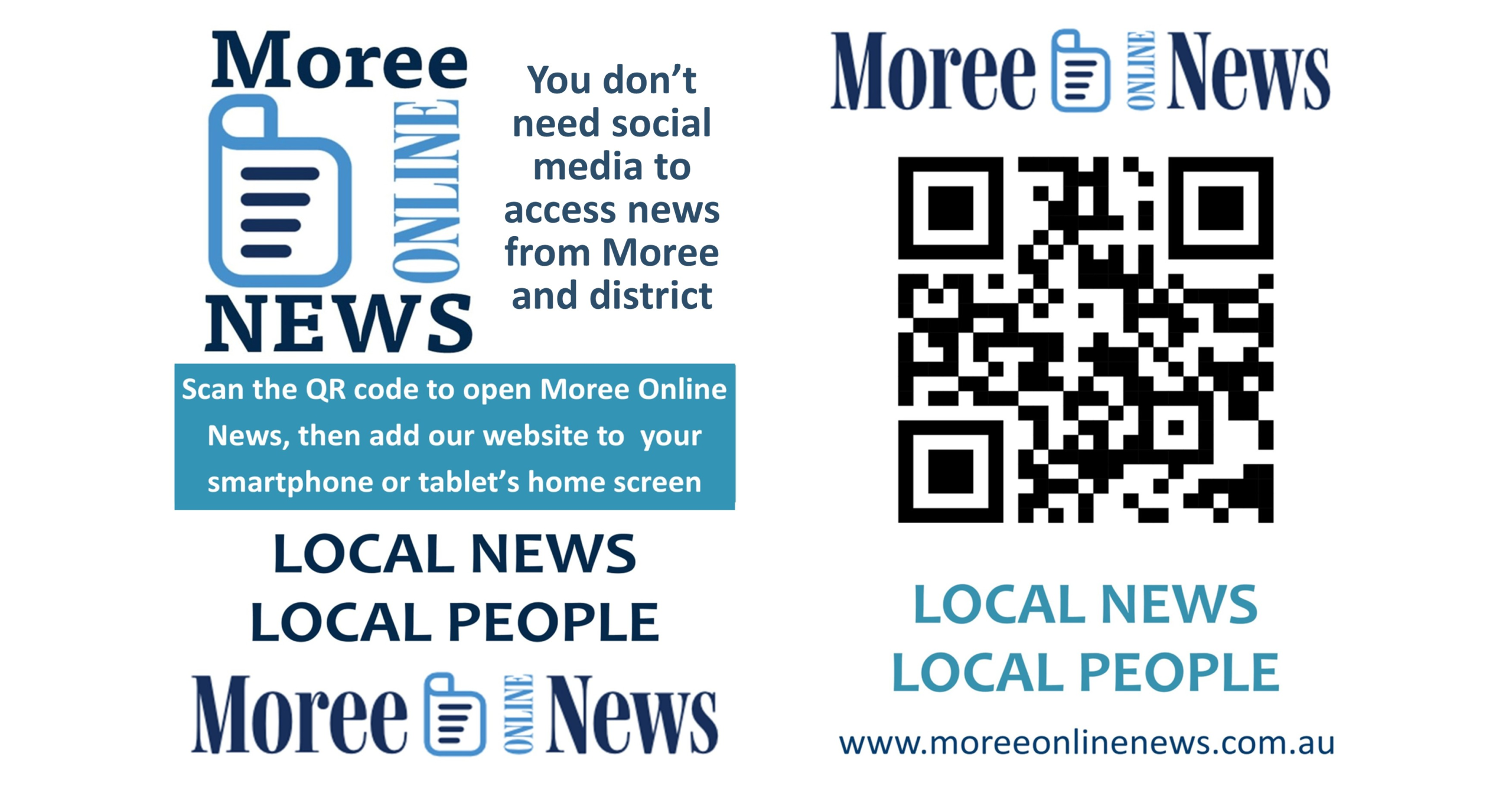


















































































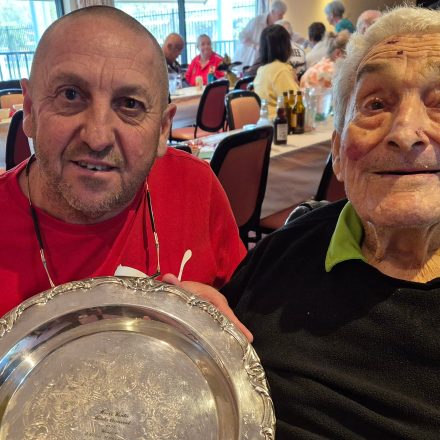

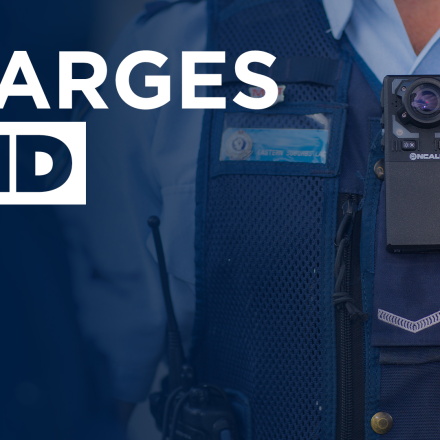
0 Comments